How To Land First Programming Job
How to land first programming job is a crucial step for aspiring programmers. The current job market demands a specific skillset, and this guide will equip you with the knowledge and strategies to succeed in your job hunt. From understanding the market landscape and building a strong foundation to crafting a winning portfolio and mastering interview techniques, this comprehensive resource will cover everything you need to know.
We’ll delve into the intricacies of the programming job market, exploring in-demand skills, typical roles, and the common hiring processes. We’ll also guide you through building a robust portfolio showcasing your skills, effective networking strategies, and thorough interview preparation. Ultimately, this guide aims to provide you with a roadmap to secure your first programming role.
Understanding the Job Market: How To Land First Programming Job

Source: learncodingusa.com
The current programming job market is dynamic and competitive, offering numerous opportunities for skilled professionals. Understanding the landscape, including in-demand skills, typical roles, and hiring processes, is crucial for aspiring programmers seeking their first job. Navigating this market effectively requires a strategic approach, emphasizing skill development and a keen understanding of employer expectations.The programming job market is characterized by a high demand for professionals proficient in various languages and frameworks.
Employers prioritize candidates who demonstrate practical skills and a capacity to learn new technologies rapidly. A strong understanding of fundamental programming concepts, coupled with demonstrable project experience, significantly enhances a candidate’s prospects.
In-Demand Programming Languages and Skills
The job market consistently favors programmers proficient in languages like Python, JavaScript, and Java. These languages are widely used in web development, data science, and software engineering, leading to a high demand for skilled professionals. Proficiency in frameworks like React, Angular, or Spring Boot further enhances a candidate’s value. Additionally, strong problem-solving abilities, data structures knowledge, and experience with version control systems like Git are highly sought after.
These skills demonstrate the ability to collaborate effectively within development teams and contribute meaningfully to projects.
Typical Entry-Level Programming Roles and Responsibilities
Entry-level programming roles often involve tasks such as developing and maintaining software components, contributing to existing projects, and adhering to coding standards. Junior Software Engineers, for instance, might be responsible for implementing specific features, testing code, and collaborating with senior engineers. These roles typically involve working within Agile development methodologies and contributing to iterative software development cycles. Responsibilities often include understanding project requirements, collaborating with cross-functional teams, and actively seeking knowledge to improve skills.
Common Hiring Processes Across Companies
The hiring process for entry-level programming positions generally involves several stages. These often include reviewing resumes and cover letters, conducting initial phone screens, followed by technical assessments, and finally, in-person interviews with potential hiring managers or team leads. These assessments aim to evaluate the candidate’s technical proficiency, communication skills, and problem-solving abilities. Candidates should expect to be evaluated on their understanding of data structures, algorithms, and their capacity to apply these to solve practical problems.
Tailoring Resumes and Cover Letters for Specific Roles
Crafting tailored resumes and cover letters is essential for enhancing a candidate’s chances of landing an interview. Candidates should meticulously research the specific requirements of each role and highlight relevant skills and experiences. Emphasizing projects showcasing practical application of programming languages and problem-solving skills demonstrates a strong understanding of the role’s needs and the candidate’s ability to contribute meaningfully.
Salary Expectations for Different Programming Roles and Experience Levels
| Role | Language | Experience | Salary Range |
|---|---|---|---|
| Junior Software Engineer | Python | 0-2 years | $50,000-$75,000 |
| Junior Web Developer | JavaScript | 0-2 years | $55,000-$70,000 |
| Junior Data Scientist | Python | 0-2 years | $60,000-$80,000 |
Note: Salary ranges can vary significantly based on location, company size, and specific skill sets. This table provides a general guideline.
Building a Strong Foundation

Source: cloudinary.com
Landing your first programming job hinges on possessing a solid foundation in essential programming skills and a demonstrable understanding of fundamental concepts. This strong base allows you to tackle challenges effectively and showcase your potential to employers. Furthermore, it enables you to quickly learn and adapt to new technologies and methodologies, crucial for career progression.A robust understanding of programming fundamentals, coupled with practical problem-solving skills and the ability to learn new concepts quickly, forms the bedrock of success in the field.
Proficiency in these areas is highly valued by employers, making it a key differentiator for entry-level candidates.
Essential Programming Skills
A strong foundation in programming encompasses more than just writing code. It involves understanding the underlying principles and methodologies that guide the development process. This includes familiarity with different programming paradigms, debugging techniques, and the ability to design and implement effective algorithms. Employers seek candidates who can not only write code but also understand the logic behind it and can identify and fix errors.
Problem-Solving and Logical Reasoning
Programming is inherently problem-solving. The ability to analyze complex situations, break them down into smaller, manageable components, and devise logical solutions is crucial. This involves understanding the underlying logic, developing efficient algorithms, and formulating effective strategies to overcome obstacles. Practice with coding challenges, puzzles, and real-world problem scenarios can significantly enhance these skills.
Data Structures and Algorithms
Data structures and algorithms are fundamental to efficient programming. Understanding how data is organized and manipulated, along with the design of efficient algorithms for processing this data, is critical for developing robust and scalable applications. Mastering these concepts enables you to write optimized code that performs well even with large datasets and complex operations. Familiarize yourself with common data structures like arrays, linked lists, stacks, queues, and trees, and their corresponding algorithms.
Version Control Systems (e.g., Git)
Version control systems like Git are indispensable tools for managing code effectively. They allow for collaboration, tracking changes, and reverting to previous versions if necessary. Proficiency in Git demonstrates your ability to work collaboratively and manage code in a structured manner, an essential skill in today’s team-oriented development environments. Learning to use Git effectively is a must for any aspiring programmer.
Fundamental Programming Concepts
A solid understanding of fundamental programming concepts is crucial for entry-level positions. These include:
- Variables and Data Types: Understanding how to store and manipulate different types of data is essential for any programming task. Variables are used to store data, and different data types dictate how that data is represented and manipulated within the program.
- Control Flow Statements: These statements (like if-else statements, loops) allow you to control the order in which code executes. Understanding how to use control flow statements is crucial for developing logic and ensuring that programs perform as intended.
- Functions and Procedures: Functions and procedures are reusable blocks of code that perform specific tasks. They are essential for modularizing code and promoting code reusability, thus increasing efficiency and maintainability.
- Object-Oriented Programming (OOP) Concepts (if applicable): Understanding fundamental OOP concepts, such as classes, objects, inheritance, and polymorphism, is important for building complex applications.
Programming Languages and Applications
Choosing the right language depends on the desired application. Here’s a table illustrating some popular languages and their typical use cases:
| Language | Application | Complexity |
|---|---|---|
| Python | Web development, data science, scripting | Beginner-Friendly |
| JavaScript | Web development, front-end development | Beginner-Friendly to Intermediate |
| Java | Enterprise applications, Android development | Intermediate |
| C++ | Game development, system programming | Intermediate to Advanced |
Portfolio Development
A strong portfolio is crucial for showcasing your skills and attracting potential employers. It’s your chance to demonstrate practical application of your programming knowledge and highlight your problem-solving abilities. This section delves into creating effective projects and presenting them in a compelling way.Creating compelling projects that demonstrate your programming skills is key to standing out. These projects serve as tangible evidence of your capabilities, and effectively showcase your technical prowess to potential employers.
Project Example Creation
A well-crafted project demonstrates not just technical proficiency but also problem-solving skills and your ability to translate requirements into working code. Projects should tackle a real-world problem, even if simplified, allowing you to demonstrate your approach and execution. Consider personal projects or contributions to open-source repositories. These can include web applications, mobile apps, data analysis tools, or even game development.
Each project should highlight specific programming languages, frameworks, or libraries you’ve mastered. A strong project should also demonstrate an understanding of design principles and software development methodologies.
Portfolio Website Structure
A well-structured portfolio website is essential for presenting your projects effectively. A professional website should include a concise introduction, showcasing your key skills and experience. Organized sections for each project, complete with clear descriptions and screenshots, are essential. The website should be responsive and easily navigable across various devices. A visually appealing and clean design, free of clutter, enhances the overall presentation and professionalism of your portfolio.
GitHub Project Showcase
GitHub is a crucial platform for showcasing your projects. A well-maintained GitHub repository demonstrates your ability to collaborate, version control, and contribute to open-source projects. Thorough documentation, including clear README files, is vital. A comprehensive README file will include installation instructions, usage examples, and any other relevant information to make your project easily accessible and understandable to potential employers.
Using clear, descriptive commit messages within your GitHub repository enhances the presentation of your work history and helps in understanding the evolution of your project.
Clear Project Descriptions
Compelling project descriptions are essential for communicating the value and impact of your work. Each project description should succinctly explain the problem you addressed, the solution you implemented, the technologies you used, and the results you achieved. Quantifiable results, such as improved efficiency or reduced errors, strengthen your project description. Avoid jargon and maintain a professional, concise tone.
Project Findings Presentation
Clearly presenting project findings is critical for demonstrating the value of your work. Using charts, graphs, or screenshots to visualize results helps to communicate complex information effectively. A structured approach, including a summary of the problem, your approach, the results, and key takeaways, enhances the impact of your presentation. A concise, well-organized format will make it easier for potential employers to understand the value proposition of your work.
Project Types and Role Relevance
| Project Type | Role Relevance | Description |
|---|---|---|
| Web Application | Front-end, Back-end | A website with interactive features demonstrating user interface (UI) design and back-end logic. |
| Mobile Application | Mobile Development | An application designed for mobile devices, demonstrating app development skills. |
| Data Analysis Project | Data Scientist, Data Analyst | A project analyzing data using programming languages like Python or R, showcasing data manipulation and visualization skills. |
| Game Development | Game Developer | A game project showcasing game design and programming skills. |
| Open-Source Contribution | Various | Contributing to an open-source project demonstrates collaboration, problem-solving, and commitment to a larger community. |
Networking and Job Search Strategies
Landing your first programming job often hinges on more than just a strong portfolio. Effective networking and strategic job searching are crucial components of the process. Building relationships with professionals in the field opens doors to hidden opportunities and provides valuable insights into the industry landscape. A well-defined job search strategy, encompassing both online and offline approaches, maximizes your visibility and increases your chances of securing an interview.Understanding the nuances of networking and job search techniques allows you to effectively target your efforts and ultimately accelerate your job hunt.
This involves leveraging various platforms, from industry events to online communities, to position yourself for success.
Networking with Professionals
Networking with professionals in the programming field is essential for career advancement. Connecting with experienced developers, mentors, and hiring managers provides invaluable insights into industry trends, best practices, and potential career paths. It’s more than just collecting business cards; it’s about forging genuine connections that can lead to mentorship, referrals, and future opportunities. This often involves attending industry events and actively participating in online communities.
Networking Opportunities
Numerous opportunities exist to network with professionals in the programming field. Meetups, online communities, and industry events offer unique avenues for interaction. Meetups are typically local gatherings where developers can connect face-to-face, share knowledge, and build relationships. Online communities, such as forums and social media groups, provide virtual platforms for discussions, knowledge sharing, and collaboration. Attending industry conferences and workshops offers opportunities to learn from renowned speakers and engage with other professionals in a focused setting.
Job Search Strategies
A comprehensive job search strategy encompasses both online and offline approaches. Online job boards like Indeed, LinkedIn, and Stack Overflow are valuable tools for finding relevant positions. Crafting a compelling online profile on platforms like LinkedIn, highlighting your skills and experience, is crucial for visibility. Actively engaging with online communities and forums related to programming can lead to direct job leads and networking opportunities.
Networking offline through meetups, workshops, and industry events can open doors to hidden opportunities and referrals.
Crafting Compelling Online Profiles
Creating a compelling online profile, especially on LinkedIn, is vital for visibility in the job market. Your profile should showcase your skills, experience, and projects, highlighting your expertise in a clear and concise manner. Use s relevant to programming roles to increase your profile’s visibility in search results. A well-crafted summary and engaging profile picture can make a significant difference.
Highlight projects and contributions that showcase your abilities and provide concrete examples of your programming skills.
Leveraging Online Job Boards
Online job boards are powerful tools for finding programming positions. Thoroughly researching job descriptions, understanding required skills, and tailoring your resume and cover letter to each application are key steps. Utilizing advanced search filters and alerts on these platforms helps you stay informed about relevant openings. Actively applying to a variety of positions demonstrates your commitment and expands your reach.
Attending Industry Events and Conferences
Attending industry events and conferences offers valuable networking opportunities. These events provide chances to connect with professionals, learn about industry trends, and gain exposure to potential employers. Networking with people in the field can lead to invaluable mentorship and career guidance. These events often feature workshops, talks, and panels from leading experts, enhancing your knowledge and skillset.
Networking Platforms and Their Pros/Cons
| Platform | Pros | Cons |
|---|---|---|
| Extensive professional network, access to job postings, potential for referrals, showcase portfolio | Can be overwhelming, requires consistent effort to maintain an active presence, competition is high | |
| Meetups | Face-to-face interaction, potential for direct connections, learn from peers, builds a local network | Limited geographical reach, time commitment, requires active participation |
| Online Forums (e.g., Stack Overflow) | Targeted community for specific programming topics, gain knowledge, find solutions, and contribute | Not always focused on job seeking, requires active participation, may not be a direct pipeline for jobs |
Interview Preparation

Source: techinasia.com
Landing your first programming job hinges significantly on acing the interview process. Thorough preparation is key to demonstrating your skills and knowledge effectively. This section dives into crucial aspects of interview preparation, equipping you with the tools to excel in these critical encounters.
Common Interview Questions, How to land first programming job
Understanding the typical questions asked in programming interviews is vital. These questions often probe your problem-solving abilities, technical expertise, and understanding of core programming concepts. Frequently asked questions cover topics such as data structures, algorithms, object-oriented programming, and design patterns. Understanding the rationale behind these questions helps tailor your responses to address the interviewer’s concerns.
Technical Coding Challenges
Preparing for technical coding challenges is crucial. Practice is paramount; work through diverse coding problems on platforms like LeetCode, HackerRank, or Codewars. Focus on understanding the problem statement, devising an efficient solution, and implementing it cleanly. Start with simpler problems to build confidence and gradually progress to more complex challenges. Pay close attention to time complexity and space complexity considerations when evaluating your solutions.
Behavioral Questions
Behavioral questions assess your personality, work ethic, and soft skills. Common examples include questions about your strengths, weaknesses, teamwork experiences, and handling challenging situations. Prepare concise and compelling answers that highlight your key attributes and experiences. Structure your responses using the STAR method (Situation, Task, Action, Result) to provide a clear and structured narrative.
Effective Communication Skills
Clear and concise communication is essential during interviews. Articulating your thought process, explaining your code, and justifying your choices is vital. Practice explaining your solutions to hypothetical situations, focusing on clarity and conciseness. Actively listen to the interviewer’s questions, ensuring you understand their queries fully before responding. Be respectful, engage actively, and maintain a positive demeanor throughout the interview.
Algorithms and Data Structures
A strong grasp of algorithms and data structures is foundational to success in programming interviews. Understanding how different algorithms function, their time complexities, and appropriate use cases is critical. Familiarize yourself with common data structures such as arrays, linked lists, trees, and graphs, and how they are used in solving problems. Practice applying these concepts to real-world scenarios.
Unexpected Questions
Interviewers might ask unexpected questions to assess your adaptability and critical thinking skills. Be prepared to think on your feet and provide thoughtful responses. Don’t be afraid to admit if you don’t know the answer immediately; instead, show curiosity and a willingness to learn. Focus on conveying your problem-solving approach rather than memorizing answers.
Different Interview Types and Expectations
This table Artikels various interview types and their corresponding expectations.
| Interview Type | Focus | Key Skills |
|---|---|---|
| Technical | Coding skills, problem-solving, and technical expertise | Algorithms, Data Structures, and specific programming languages |
| Behavioral | Assessing personality, work ethic, and soft skills | Communication, teamwork, problem-solving under pressure |
| System Design | Designing large-scale systems and assessing scalability | Architecture, design patterns, and trade-offs |
Final Thoughts
In conclusion, securing your first programming job requires a multi-faceted approach. Understanding the market, building a strong foundation, developing a compelling portfolio, networking effectively, and mastering interview techniques are all crucial steps. This guide has provided a comprehensive overview of each stage, offering actionable insights and strategies to help you succeed. By following these steps, you can confidently navigate the job market and land your first programming role.

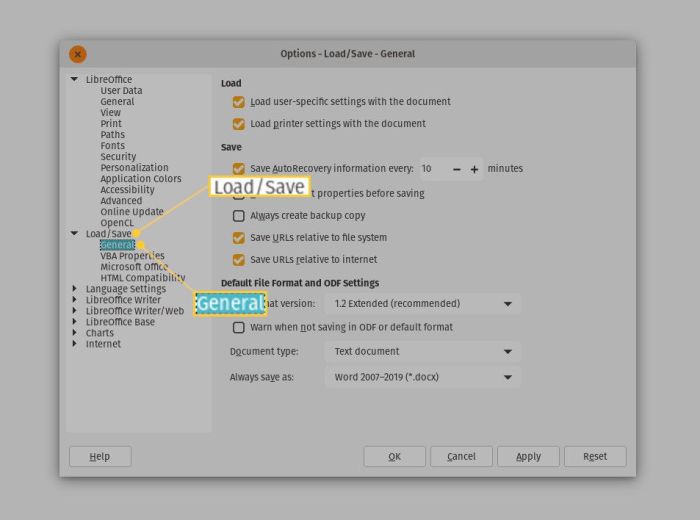
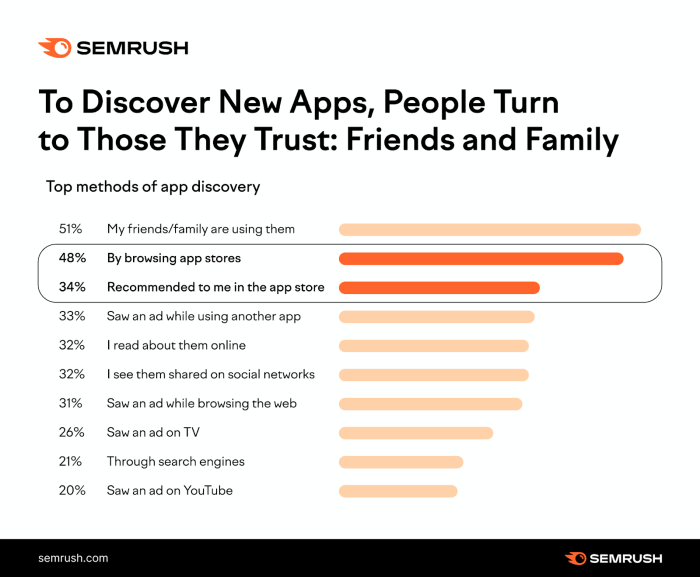
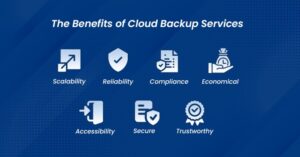
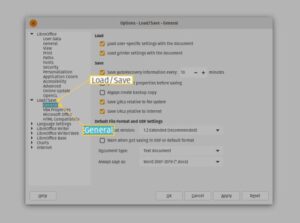
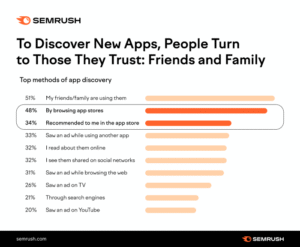
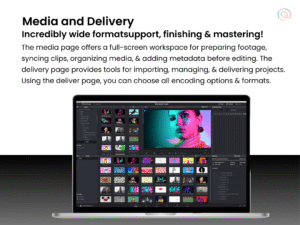






Post Comment